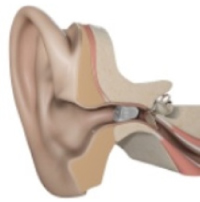
Hearing loss is quite prevalent but not many people understand it. Even those who are struggling with the condition still believe many of the myths. However, thanks to advances in science and technology, hearing loss is now better understood and more easily treated. Here are some common myths followed by the truth.
Hearing loss is normal among older people and can’t be treated
The ability to hear well often decreases with age. However, you shouldn’t assume that nothing can be done. In the past, people with nerve damage, hearing loss in one ear or high-frequency hearing loss were told their condition couldn’t be treated. However, that is not the case in modern times. Most types of sensorineural hearing loss can be improved with modern hearing aids. Miracle-Ear, Oticon and Starkey are common brands. Don’t assume that your hearing loss or that of a loved one can’t be treated.
Hearing loss only affects old people

Many older people lose their hearing but hearing loss actually affects all age groups. One in ten people in the United States has some loss of hearing, whether mild or profound. Statistics also show that only 35 percent of people with hearing loss are over age 64. It is clear that you don’t have to be “old” to have challenges with hearing. If you’re finding it difficult to keep up with conversation around your or hear other people on the telephone, get your hearing tested. It does not matter how young you are.
Hearing loss doesn’t affect your health generally
If you or a relative have mild hearing loss, you may be tempted to just bear with it and learn to adapt. You may not think that it can affect your overall wellbeing and health. Untreated hearing loss actually increases your risk of dementia and other forms of cognitive decline, depression, and social isolation. You’re even at greater risk for falls. Researchers believe this is because the “cognitive load” on the brain reduces the resources available for other functions. Treating the hearing loss can prevent or reverse these problems.
You don’t have to get hearing aids as soon as you start having difficulty hearing.
Your hearing loss may seem mild at first and it may progress slowly. You should still seek treatment as soon as possible. Your hearing may worsen the longer you wait. If the auditory system in your brain isn’t stimulated regularly, you may stop recognizing sound. People who take too long to get assistive devices often realize they don’t work well when they do get them.
A hearing aid will immediately make your hearing perfect

Typically, when you put on new glasses, your vision improves immediately. Hearing aids don’t work in the same way. Your brain needs time to adjust to hearing sounds better. The device also needs to be programmed to your unique way of hearing frequencies and the nature of your hearing loss. You may have to return to your healthcare provider multiple times for fine-tuning until you get the best results. Even then, your hearing won’t be “normal”. Modern hearing aids can make sounds seem more natural but it will not exactly what you’re used to.
As you can see, hearing loss can affect any age group. However, it can often be treated if diagnosed early. You do not have to suffer for the rest of your life.
Leave a Reply